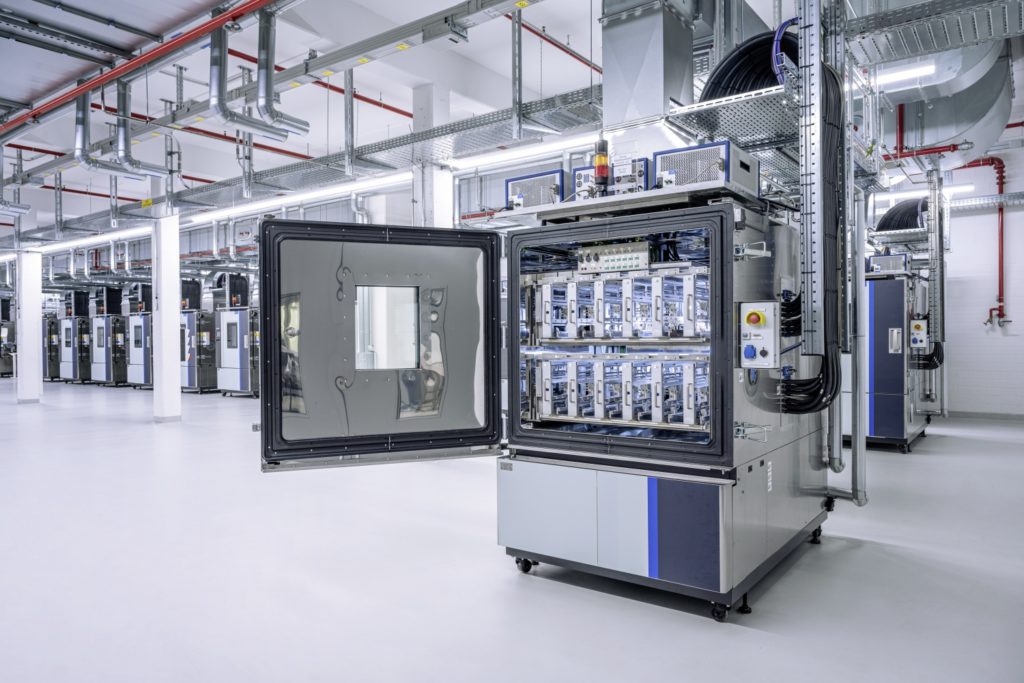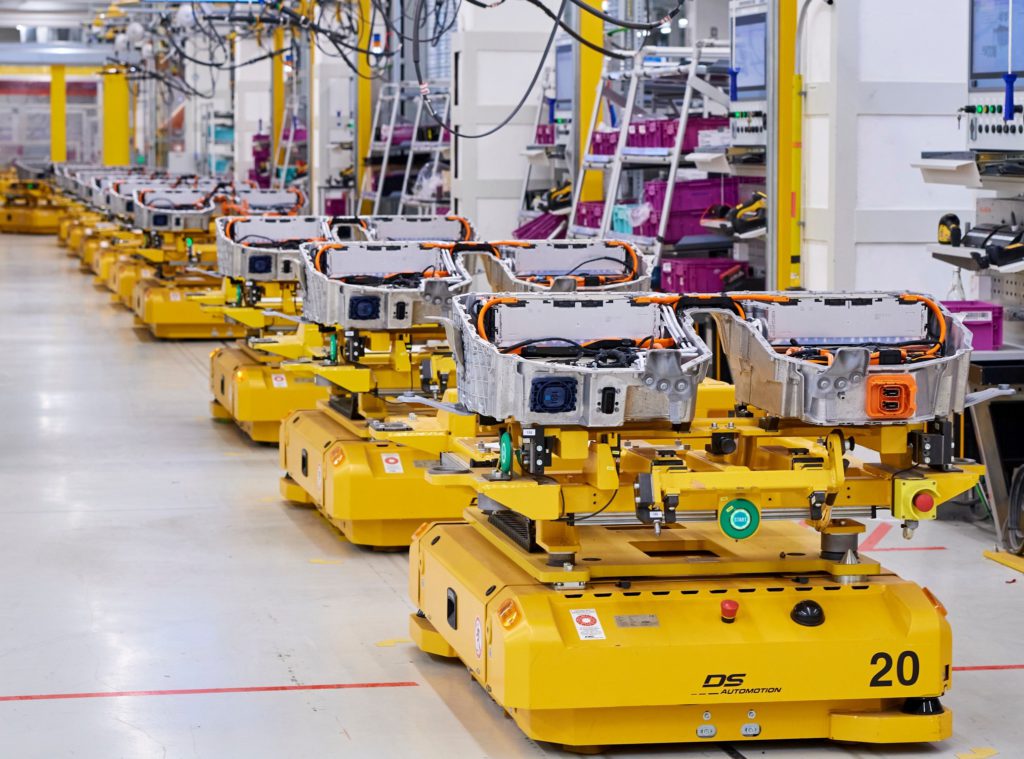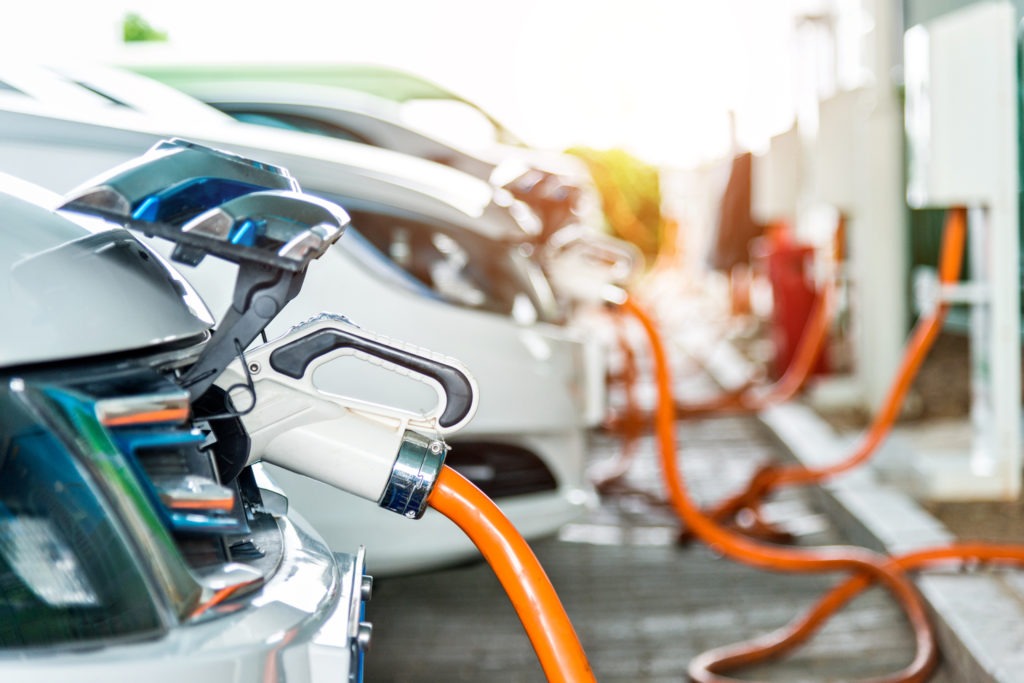Powering up competitive vehicle-battery plants in Europe
17 September 2021

With the EU planning to ban new petrol and diesel car sales from 2035, the automotive industry has come under mounting pressure to produce battery-electric vehicles (BEVs) – this means establishing the necessary infrastructure, not to mention a dependable battery supply chain.
Recent BEV investment surges by established carmakers do not come as a surprise. More manufacturers are rushing to keep up with growing demand, spurred on by environmental concerns and legislative changes. The production of lithium-ion batteries – arguably the most important component of an electric car – lies at the heart of the matter.
The BEV market is expected to grow immensely in the next few years with batteries becoming a key purchase factor – just like internal-combustion engines (ICE) in the past. The European Battery Alliance (EBA) estimates that the battery market’s annual value will hover at around €250 billion from 2025 onwards. But first, companies need to lay the groundwork.
Volkswagen or Voltswagen?
Germany’s largest carmaker Volkswagen (VW) opened a research and development centre for the large-scale production of its own battery cells this week. The company revealed it would pour €70 million into the unit. Situated in its home market, in the town of Salzgitter, the centre is part of VW’s wider strategy to become a key player in battery technology.
The manufacturer aims to gradually set up an internal cell production facility in Salzgitter, reducing battery costs and dependence on foreign suppliers. The site will begin production in 2025, and by 2030 the company aims to run six cell factories in Europe with a production capacity of 240 GWh.
‘With the new, state-of-the-art laboratories, we are further expanding our development, process and production expertise for the battery cell – the heart of the battery-electric vehicle,’ said Thomas Schmall, VW group board member for technology. ‘Volkswagen’s Salzgitter site demonstrates how the transformation of the German automotive industry from conventional drive systems to e-mobility can succeed.’
Made in Europe
It is not only VW that is keen on pushing ahead with battery production in Europe. Porsche confirmed to Autovista24 that it is currently looking at three potential locations in Germany for its planned cell-production facility. ‘The decision will be made in the next few weeks,’ a spokesperson said. Back in June, the company announced a double-digit million investment in a new joint venture with Customcells called Cellforce Group, with the aim of establishing a gigafactory close to its Stuttgart headquarters.
While Mercedes wants to set up eight factories for producing cells in the coming years, this month Opel received a €437 million government grant to build a battery-cell factory at its German Kaiserslautern plant.
On 16 September, China’s largest automotive battery maker, Contemporary Amperex Technology Co. (CATL), announced a partnership with German chemical giant BASF. The two companies want to develop a sustainable value chain that includes battery recycling. In the long run, CATL is looking to build its first European factory in Germany to localise lithium-ion battery production.
Catching up with Asia
While China has led the way when it comes to battery production, other Asian countries are catching up. Hyundai and LG Energy Solution began the construction of a battery-cell plant in Indonesia this week, with production to begin in 2024. The facility is expected to produce 10GWh worth of lithium-ion battery cells every year, enough to power around 150,000 BEVs. The batteries will be used in Hyundai and Kia’s all-electric models.
‘Starting with this plant, an EV ecosystem will be successfully established in Indonesia with the development of various related industries,’ said Euisun Chung, chairman of Hyundai Motor Group. ‘We expect Indonesia to play a key role in the Association of Southeast Asian Nations (ASEAN) EV market.’
European manufacturers may have been slow to take off, but changes are afoot. As the future of mobility is looking to be greener with a clear focus on electromobility, more gigafactories will crop up in the region.



